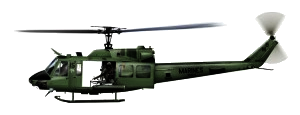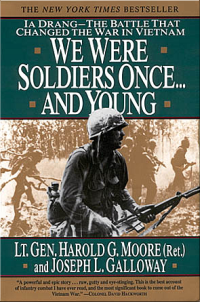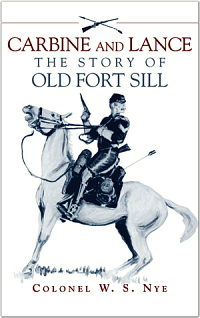American Debate
In 1872, Pennsylvania met in convention to amend the state constitution. On the one hundred and fifieth day the convention was called to codify whether or not the citizens’ right to self-defense included the right to carry concealed weapons.
I do not believe in it. I believe in the right of self-defence of the weak against the strong, and I do not propose to allow any man to maltreat me at his pleasure, as long as there are any weapons of defence to be had by which I can equalize my strength with his.

Debates of the Convention to Amend
the
Constitution of Pennsylvania:
Convened at Harrisburg, November 12, 1872.
—————
One Hundred and Fiftieth Day.
THURSDAY, September 25, 1873.

Mr. STRUTHERS. I move that the Convention go into committee of the whole, for the purpose of specific amendment, by inserting in the twenty-first section, after the word “citizens,” in the first line, the word “openly,” so as to read: “The right of the citizens openly to bear arms in defence of themselves and the State, shall not be questioned.”
The first suggestion as to this matter was made to me by his honor, Judge Pearson, and he gave me this information, that although there was an act of Assembly which prohibits the bearing of arms secretly, yet when persons get into broils, one pulls out his dirk and sticks the other, or a pistol and shoots him. Although the act of Assembly is against carrying arms secretly in that way, yet they fall back on the Constitution, which they say authorizes the bearing of arms, and therefore the act of Assembly is unconstitutional. A construction has been given by the courts, I believe, that sustains the procedure under the act of Assembly; but that has been made constantly a matter of defence, and it gives the courts great annoyance. During our recess I met several judges of the courts, Judge Trunkey, Judge Wetmore and Judge Vincent, and they all seemed anxious that something of this kind should be introduced. The bearing of arms secretly has produced great mischief, and the only effect of the introduction of the words I propose would be to prohibit it by constitutional provision.
Mr. HUNSICKER. I think this amendments should prevail and the word “openly” should go in for this simple reason, that in some portions of the State they have local laws against carrying concealed deadly weapons, and when that question was brought before one of the courts of Philadelphia, one of the judges declared that a person upon the witness stand who had a pistol concealed on his person had a constitutional right to carry that pistol concealed, and in other portions of the Commonwealth they fine and imprison a man for carrying a concealed deadly weapon. The spirit and intention of the section is to allow men to bear arms for their own defence, and not arms for aggressive purposes.
And just here let me parenthetically remark that the Convention on second reading had an opportunity to have this question, as all questions of law should be, referred to the Supreme Court for adjudication. If there was a right to review the judgments of the courts of criminal jurisdiction, there would be no such conflict of law as now exists with reference to the construction of this very section of the Bill of Rights; and for fear that the Convention will not finally adopt that provision, which I had the honor to offer in committee of the whole and on second reading, I think the word “openly” should now go in this section so that every judge in the Commonwealth will know exactly what is meant by the provision allowing citizens to bear arms.
Mr. MACVEAGH. For one, I shall vote against the proposition. In the first place, I think the present Constitution is perfectly explicit and satisfactory on this subject; and in the second place, I have never been able to understand why a man might not be under the necessity of protecting himself by carrying a weapon of defence. Suppose an epidemic of garroting breaks out in the city of Philadelphia, as it did in the city of London a very few years ago; to tell me that I am to walk the streets of this city at night without any protection whatever from ruffians, is to state something to which I will never agree. Suppose I may be required, as I have been on different occasions, coming from the city of Washington upon a delayed train, to walk at half-past one or at two o’clock in the morning from the depot at Broad and Prime streets, and have my steps dogged all the way to the hotel, am I to have no possible protection? I understand that among other things that cannot be taken from a man, is the privilege he has to defend his life and to protect himself. Of course he is answerable to the fullest extent for the use of it, and your law against carrying concealed weapons does not interfere with the habit among the dangerous classes. But there are periods in every community, periods of excitement, when it may be necessary for a man to say in his own behalf, “Say what you please and do what you please, but you must not beat or maltreat me,” and with all the inequalities of physical condition that exist, it is the very worst thing in the world to say that if a man of my condition offends a man like Judge Woodward, he is to take a severe beating whenever his enemy chooses to inflict it. I do not believe in it. I believe in the right of self-defence of the weak against the strong, and I do not propose to allow any man to maltreat me at his pleasure, as long as there are any weapons of defence to be had by which I can equalize my strength with his.
Mr. HUNSICKER. Will the gentleman allow me to ask the gentleman a question?
Mr. MACVEAGH. Certainly.
Mr. HUNSICKER. I would like to ask him whether he believes the laws which are passed against carrying concealed deadly weapons are constitutional or unconstitutional.
Mr. MACVEAGH. I have no doubt whatever that a law properly framed against the carrying of concealed deadly weapons might be constitutional, but I understand the words in the old Constitution are used in the public sense of bearing arms in defence of person and life, as our ancestors did, and not for offensive purposes.
Mr. HUNSICKER. Let it be more explicit then.
Mr. BROOMALL. Will the gentleman tell me if the Legislature have a right to pass a law against carrying concealed deadly weapons, why they have not a right to pass a law against carrying open deadly weapons?
Mr. MACVEAGH. If you put it upon that ground, I cannot see that the constitutional difficulty is avoided. I cannot see why the Constitution should prohibit a man from carrying weapons to defend himself unless he carries them openly, why you should require him to sling a revolver over his shoulder. If you mean that the militia shall be armed, you will find that provided for in another article.
Mr. HUNSICKER. To be more explicit then, does the gentleman consider the law constitutional which prevents a man from carrying a revolver concealed beneath his coat in the streets of Philadelphia.
Mr. BARTHOLOMEW. Under the laws of the State of Pennsylvania, there are certain counties in which it is lawful for a man to carry concealed weapons.
Mr. MACVEAGH. Yes, that is one of the evils of the legislation upon this subject, that it is special. There should be a general provision on the subject or none.
Mr. HUNSICKER. Does the gentleman consider these laws constitutional or unconstitutional.
Mr. MACVEAGH. I do not know whether they are constitutional or unconstitutional. It is well for this Convention to consider whether we ought not to make such a provision that laws on this subject will be uniform. But there are times of excitement and passion and danger, in every community, when I will never consent that an individual who carries weapons for his own defence shall be adjudged guilty of a crime, and I do not believe that the laws now existing would so declare.
Mr. BEEBE. I trust the Convention will not go into committee of the whole for the purpose of putting in this amendment. For more than four years in the oil regions of Pennsylvania, during the excitement of speculation and during the war, no man’s life would have been safe had it not been well understood that every man carried concealed weapons. No man had any business to be there without them. Highway robbery even was best prevented by the assailed getting frequently the advantage of the first shot. Thieves and murderers never would and never do regard any law of this kind, and the revolver under such circumstances is the best conservator of the public peace in the hands of law-abiding men. No man desires to be in the position of being assailed by a lot of drunken bullies who are reckless of anything they may do unless restrained by fear.
I agree with the gentleman from Dauphin that there are circumstances where a man has the right and must have that right for protection to himself, unless he expects to be knocked down and beaten by a dozen drunken bummers who may be out upon a raid, and who may inflict upon him any violence or any base practices by which they may desire to humiliate or degrade him.
Mr. HOWARD. I am in favor of the amendment; I hope it may be adopted.
No man ought to carry any weapon smaller than a musket or a double-barrelled shot-gun so that any other man can see it. I do not think that there is any necessity for carrying a pocket-pistol, bowie-knife, or anything of the sort.
Mr. NEWLIN. I suggest mountain howitzers. [Laughter.]
Mr. GIBSON. I wish to make but a single remark, and that is that in the acts of Assembly with regard to concealed weapons the word “maliciously” or “feloniously” is used, and there is something in the act itself which relates to the intent of carrying these concealed weapons. Take up any of these acts of Assembly, and you will find something that makes the case turn upon the evil intent with which the weapon is carried. Hence it is constitutional to pass such laws in order to restrain persons from carrying concealed weapons with malicious intent.
Mr. DALLAS. I am in favor of the amendment for the consideration of which it is proposed that we shall now go into committee of the whole. I do not think that the bearing of that amendment has been precisely understood by the gentleman from Venango, (Mr. Beebe,) and by others who have opposed it. It is not intended to compel the Legislature to pass a law against the carrying of concealed deadly weapons. There is nothing of the kind in it. If the amendment should be adopted, the section as amended would read: “That the right of citizens openly to bear arms, et cetera, shall not be questioned.” That is all there is of it. It would leave it to the Legislature to pass or not, as it might deem best, such laws as have heretofore been enacted to prevent the carrying of concealed deadly weapons. If in the county of Venango, for instance, there exists the condition of lawlessness to which the gentleman from that county has referred, and the constituted authorities there are not able to suppress it, and to protect peaceable citizens, then it certainly would be right that the Legislature should pass no law applicable to that section, to punish the carrying of weapons, even though concealed, by peaceful citizens. There would be nothing, in this section, oven if amended as proposed, in the nature of a mandate to the Legislature, and the section itself would not contain a single word that could be construed to prohibit citizens from carrying arms in any manner they might see fit.
I hope this amendment will pass for the reason that while I concur with the gentleman from Dauphin in thinking that the section is sufficiently clear as it stands, still I cannot set up my opinion against judges of our courts who have held otherwise, and it is enough for mo to know that there may be a difference of opinion on this question to make me desire that it shall be placed beyond doubt. I confess I do not understand the force of the argument of the gentleman from Dauphin. He does not want the amendment adopted because he says that being himself slight of stature but strong of nerve, he should not be deprived of the equality, with greater physical force, which the possession of a pistol might secure to him. Where the Legislature may recognize the existence in any part of the State of a condition of affairs making it proper for a man to carry a pistol, they would be at liberty to say so under this amendment: but whatever maybe true of the county of Venango, here in this well regulated city of Philadelphia I do not believe that the carrying of concealed deadly weapons is necessary for the protection of orderly people.
Mr. EWING. Will the gentleman from Philadelphia allow me to ask him a question?
Mr. DALLAS. With pleasure.
Mr. EWING. Have there not been repeated occasions within the past ten years when it has been unsafe for people to go abroad in Philadelphia upon the public streets without carrying deadly weapons?
Mr. DALLAS. I think not, to the extent which the question implies. Here, as in every other large city, men have been assaulted and robbed on the street; but we are speaking now not of isolated cases, but of a state of society that would warrant peaceable citizens generally in arming themselves for the protection of their lives and property. No such state of society exists in Philadelphia; and why, let me ask, should not the Legislature lie permitted to say that concealed deadly weapons shall not be carried here, or that the person who carries them shall be punishable for it, and that when they do say so, the constitutionality of their act shall be beyond question?
But the purpose of such laws is not to prevent peaceable citizens from protecting themselves from the superior muscular power of ruffians, but to prevent the ruffians from arming themselves against peaceable citizens. The gentleman has no right to ask that he may exercise a power outside of the law to protect himself, when the law itself is sufficient for his protection. That very law which he complains of is made for him and not against him; and I appeal even to those gentlemen who think, that there should be no law against carrying concealed deadly weapons to vote for this amendment, for the reason that there is nothing in it which would compel the Legislature to enact such a law. It would leave the whole subject to the representatives of the people, and its only purpose is to make clear a constitutional provision in regard to which there has been some conflict of opinion.
The PRESIDING OFFICER. [Mr. Bartholomew in the chair.] The motion is that the Convention go into committee of the whole for the purpose of amending, by inserting after the word “citizen,” in line twenty-one, the word “openly.”
Mr. BEEBE. I would ask the gentleman from Philadelphia, if convictions have been repeatedly had in this city, under this section as it stands, for carrying concealed deadly weapons, why the necessity of the change?
Mr. DALLAS. Those trials were before judges who never doubted the constitutionality of the law. Other judges have doubted it. I desire it settled.
The PRESIDENT. The question is on the motion to go into committee of the whole for the specific amendment proposed by the delegate from Warren (Mr. Struthers.)
Mr. MACVEAGH. On that I call for the yeas and nays.
Mr. DALLAS. I second the call.
The yeas and nays were taken and were as follow, viz:
YEAS.
Messrs. Andrews, Bartholomew; Bigler, Curtin, Dallas, Dunning, Ellis, Fulton, Hazzard, Horton, Howard, Hunsicker, Mann, Nowlin, Purviance, John N., Purviance, Samuel A., Smith, H. G., Smith, Henry W., Smith, Wm. H., Struthers, Turrell, Wright and Walker, President
—23
NAYS.
Messrs. Achenbach Alricks, Baily, (Perry,) Bailey, (Huntingdon,) Beebe, Black, Charles A., Black, J.S., Bowman, Broomall, Buckalew, Carter, Cochran, Corbett, Curry, Darllington, De France, Edwards, Ewing, Funck, Gibson, Gilpin, Guthrie, Hall, Hanna, Harvery, Hay, Hemphill, Kaine, Landis, Lear, Lilly, Long, MacConnell, MacVeagh, M’Clean, M’Culloch, M’Murray, Mantor, Minor, Mitchell, Mott, Niles, Palmer, G. W., Patterson, T. H. B., Patton, Reynolds, Russell, Sharpe, Stanton, Wetherill, J. M., White, David N., White, Harry, White, J. W. F. and Woodward
—54.
So the motion was rejected.
A tip o’ the hat to The Volokh Conspiracy.



















Recent Comments